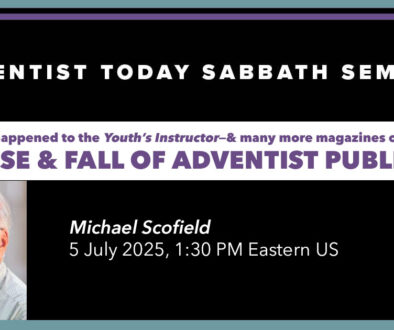Sharing Scripture for January 17 – 23
[symple_heading style=”” title=”The Hard Way” type=”h1″ font_size=”40″ text_align=”center” margin_top=”0″ margin_bottom=”30″ color=”undefined” icon_left=”” icon_right=””]
This is a tool for you to use if you lead a Sabbath School (SS) class or small group. It is keyed to the Bible texts used in the current week’s Adult SS lesson and includes a brief story from current news you can use to introduce the discussion and then a series of discussion questions in a relational pattern designed to build fellowship and spiritual reflection.
For use: January 17 – 23
Texts: Isaiah 7:14-16; Isaiah 7:17-25; Isaiah 8:1-10; Isaiah 8:11-15; Isaiah 8:16-22
The school of hard knocks can occasionally be the best teacher. A year ago, we had no idea of the challenges we were about to experience. But ultimately, these challenges help us grow. In reflection, Morocco World News commentator Jihad Dardar explores some lessons we’ve learned along the way.
For instance, we’ve rediscovered just how adaptable humans are as we learned how to function in a lockdown, including working from home and wearing face coverings when necessary. We’ve also learned how easily our mental health is affected by unexpected challenges when we don’t take steps to care for our emotional wellbeing.
The importance of relationships came to the forefront during the past year as well. We discovered just how essential it is to find creative ways to connect with family and friends when we can’t readily visit together. We learned how to use online connections when it’s not safe to physically gather for holiday reunions.
At the same time, we’ve seen that too much screen and social media time can be toxically addictive. Psychologists coined a new condition they call “nomophobia” (no mobile phone phobia).
Finally, we’ve determined that it’s okay to focus on self-care. Spending time involved in hobbies, going for walks, or listening to our favorite music can be therapeutic.
Sometimes, God has to resort to extreme measures to teach us the lessons of life we need to learn. God wanted Judah and Israel to practice simple human kindness—caring for the poor, the disadvantaged, the widowed and fatherless, and the strangers and aliens who came to them for help. Instead, the rich oppressed these disaffected groups. God needed to get their attention, so a brutal regime taught them a lesson. Isaiah warned them to change their ways or the king of Assyria was coming.
Judah’s King Ahaz chose to turn to spiritualists and mediums for guidance, rather than listen to Isaiah’s messages from God. Isaiah warned Ahaz that this would backfire, and eventually the people would curse him for leading them astray. Since he never learned God’s lessons in his life, Judah showed Ahaz the ultimate disrespect when they refused to bury him in the tomb of the kings.
God even involved Isaiah’s personal family life in this prophecy of warning, which Ahaz ignored. God directed Isaiah to name one son Maher-shalal-hash-baz, which roughly means “making speed to the spoil; he hastens to the prey,” and his other son was named Shear-Jashub, “a remnant will return.” Those strange names incorporate both a warning and a promise: war is coming, but the insurgency will ultimately fail.
God doesn’t abandon us. Even though we occasionally go through challenging years, God uses those times to teach us valuable lessons while promising to bring us through to better days.
[symple_divider style=”solid” margin_top=”20″ margin_bottom=”10″]
Connecting: What is the most valuable life lesson you’ve learned through a challenging experience? Was this a hard lesson to learn?
Sharing: Why do you think it’s hard for people to listen to the voice of experience? Why do we need to go through our own hard challenges to take some lessons to heart?
- When I was a teenager, I knew so much more than my parents did; as I got older my parents got smarter
- A person’s testimony may be interesting to me, but going through a similar experience myself is what ingrains the lesson in my heart
- Some people may suffer from potential pitfalls, but that will never happen to me
- Warnings of danger are just trying to restrict my liberty, and I refuse to live in fear
- The attractions of this world often speak much louder than the still, small voice of God
- Other:
Applying: What would it look like to organize an effective “scared straight” program to deter juvenile criminal offenses among your congregation’s youth? As you share with your group through your online connection(s), decide what would be the most important lesson your children need to learn. How can you present this lesson effectively without just resorting to scare tactics?
Valuing: Prayerfully consider what the most important lesson is that God is trying to teach you right now. Are you resisting God’s leading? What are some of the consequences of ignoring that lesson? Connect with a trusted friend over the phone or a video chat and share your thoughts together. Conclude by praying for each other to be able to submit to God’s will for your lives.
~ Chuck Burkeen




